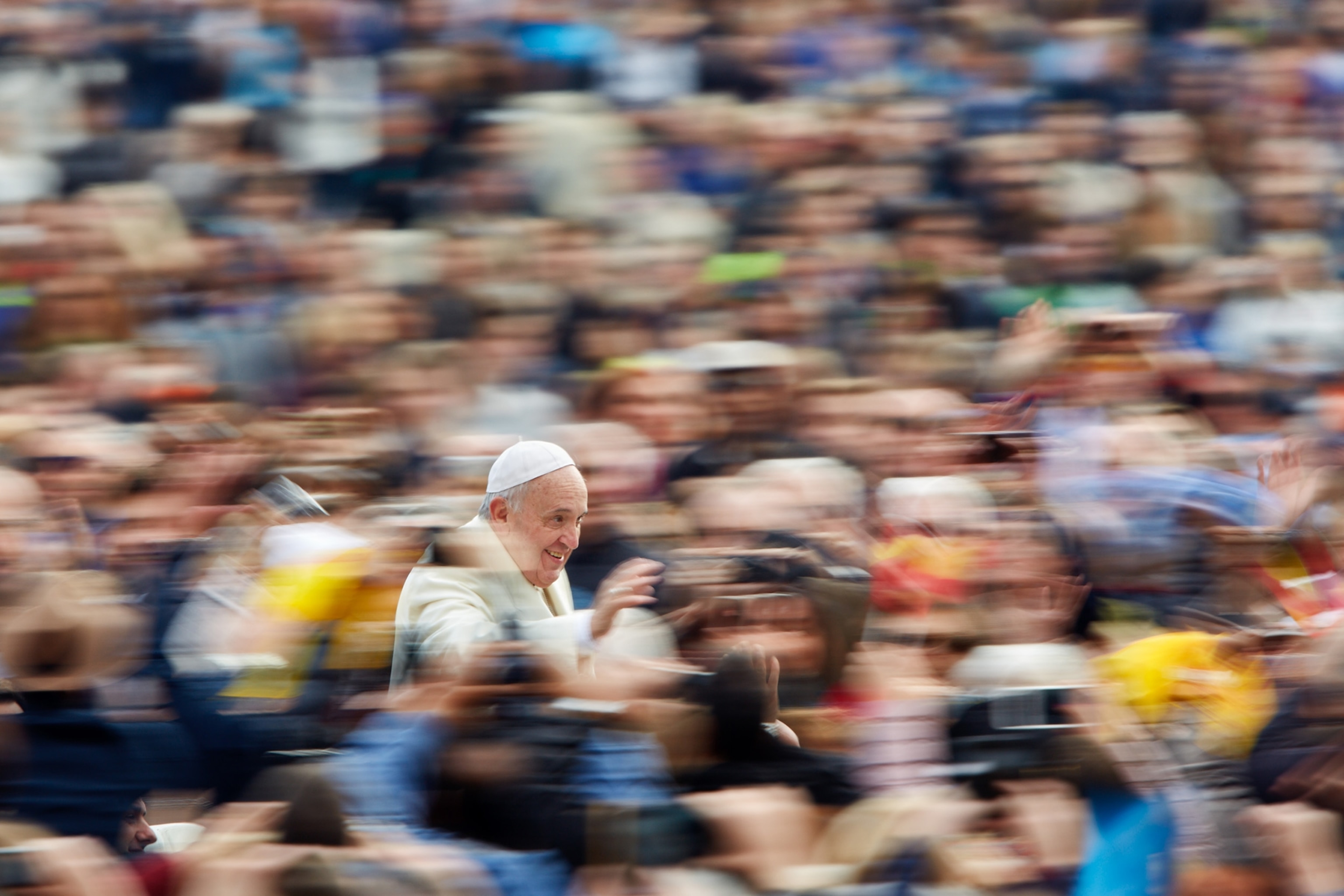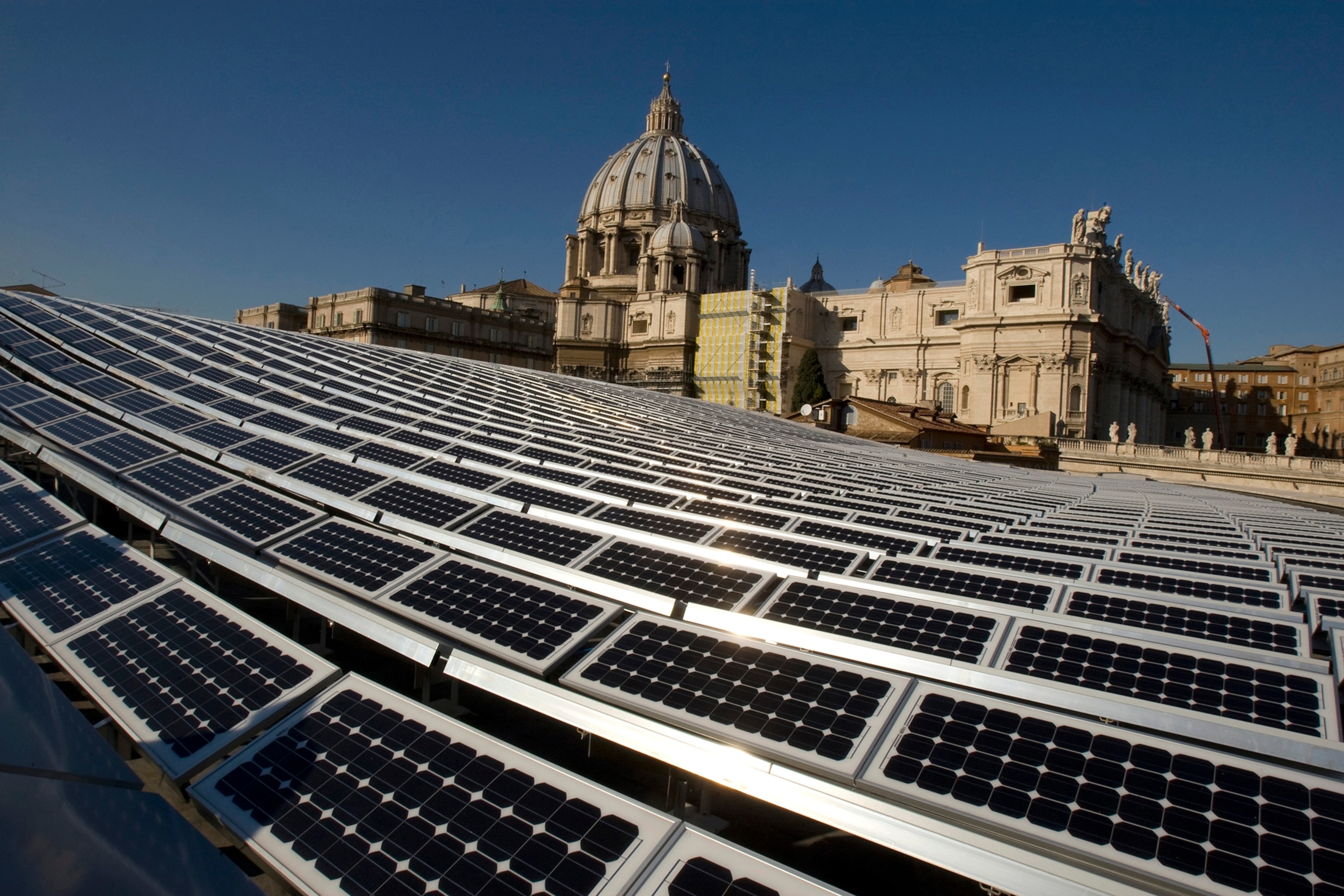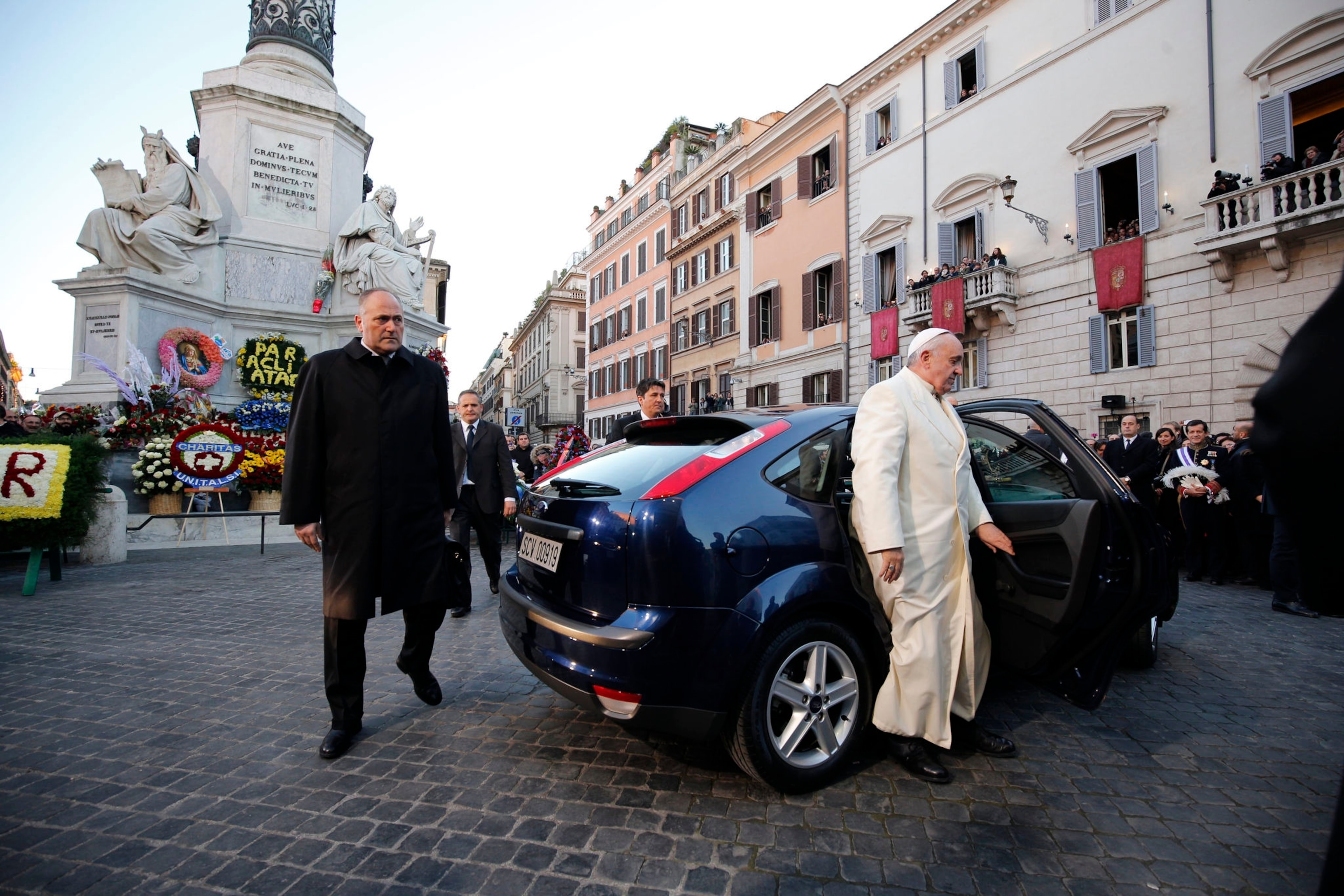
Vatican Was Going Green Long Before Pope's Climate Decree
Pope Francis is eloquent and driven, but is just the latest in a line of Catholic leaders attempting to push environmental issues higher on the church agenda.
Updated Thursday at 12:00 p.m. Eastern Time.
Pope Francis's long-awaited letter on the environment, officially released Thursday, marks a milestone in conservation: The leader of 1.2 billion Catholics is articulating a formal case that cleaning up the earth and curbing global warming are moral imperatives.
“Climate change is a global problem with grave implications: environmental, social, economic, political and for the distribution of goods,” the pope wrote in his encyclical, the most significant decree a pope can issue. “It represents one of the principal challenges facing humanity in our day.”
But it should come as little surprise that this pope is taking up this cause so forcefully at this moment.
From Pope John Paul II's pleas to respect nature a quarter-century ago to the Vatican's increasingly sophisticated relationship with science, the Roman Catholic Church has been moving for decades to take environmental issues seriously. And Pope Francis, a former chemist with a deep concern for the poor, seems intent on demonstrating that climate change—the ultimate "green" issue—is about more than saving polar bears.
It is instead, according to his encyclical, about “the intimate relationship between the poor and the fragility of the planet.” Addressing that, experts say, is not an issue of science. It’s about ethics.
"Climate change raises existential questions: What is our proper relationship to other human beings, to future generations, to the natural world?" says Anthony Leiserowitz, Director of the Yale Project on Climate Change Communication.
"This isn't just about loving creation, but about harming millions of people," he says, “the very people whose lives Christians have been told they need to devote themselves to improving."
The Vatican may be best known for entering the political fray when speaking out against abortion or gay marriage (even Thursday’s encyclical reiterates the church’s criticism of abortion). But Catholicism has long transcended political boundaries.
The last two popes pushed to get environmental issues more attention on the Catholic agenda. But it's Pope Francis, with his gift for communicating, who is managing to elevate the conversation.
"What Pope Francis is saying is in keeping with what was said by those who came before him—he's just saying it in a more relatable way," says Bill Patenaude, one of the founders of the Global Catholic Climate Movement. "But he has a personality that's unique. People are attracted to Pope Francis. That has made this easily the most anticipated encyclical in church history."
This isn't just about loving creation, but about harming millions of people—the very people whose lives Christians have been told they need to devote themselves to improving.Anthony Leiserowitz, Yale Project on Climate Change Communication
Owners and Dominators
The pope addressed his encyclical to “every person living on the planet.” It suggests greenhouse gas emissions from the wealthier northern hemisphere are largely responsible for global warming, which threatens the less fortunate to the south, through searing temperatures and water and crop shortages.
“Many of the poor live in areas particularly affected by phenomena related to warming, and their means of subsistence are largely dependent on natural reserves and ecosystemic services such as agriculture, fishing and forestry,” the pope wrote. “They have no other financial activities or resources which can enable them to adapt to climate change or to face natural disasters, and their access to social services and protection is very limited.”
The encyclical urges the world to change direction, reduce consumption and unite to fix the problem: “Humanity is called to take note of the need for changes in lifestyle and changes in methods of production and consumption to combat this warming, or at least the human causes that produce and accentuate it.”
Climate scientist Veerabhadran Ramanathan, a professor with the University of California, San Diego, was among those who briefed the pope on climate issues in a Rome parking lot last year. He says he was amazed by how quickly Francis seemed to grasp the complexities.
"I don’t see any discord between the church and science," Ramanathan says. "If anything, there is harmony."
The Vatican's Solar Panels
Rome may forever be remembered for its persecution of Galileo, but the modern church does not see a contradiction between religious conviction and rigorous research.
The church solicits advice from its own academy of scientists, which comprises Nobel Prize winners and top global thought leaders such as Ramanathan, some of whom are atheists or practitioners of other faiths.
And Popes since Pius XII in 1950 increasingly have accepted most tenets of evolution, for example, while other religious denominations have not. Pope Francis's predecessor, Pope Benedict XVI, proclaimed there were "many scientific proofs in favor of evolution, which appears to be a reality."
In fact, it was Benedict who was known as the first "Green Pope." He not only embraced the threat posed by climate change, but pushed nearly a decade ago to try and make the Vatican carbon-neutral. He installed solar panels on a Vatican hall and sought a hybrid popemobile.
"From way, way back in the theological tradition, there has been an emphasis on avoiding the excessive use of the goods of the earth," says Jame Schaefer, a professor of theology at Marquette University who focuses on links between ecology and religion. "Both John Paul and Pope Benedict did a lot to emphasize overconsumption, and greed and the sustainability of the world."

But where Benedict is a shy intellectual, Francis is a charmer. When Francis spoke about evolution in late 2014, he did so in typically memorable fashion.
"God is not a divine being or a magician, but the Creator who brought everything to life," Francis said. "Evolution in nature is not inconsistent with the notion of creation, because evolution requires the creation of beings that evolve."
Ramanathan and others say such oratorical skill in linking science and the divine may be what has been missing from the climate-change discussion.
"About 60 percent of global warming emissions is coming from the wealthiest 1 billion people while the poorest 3 billion can't afford or access fossil fuels," Ramanathan says. "We need technology and science, but the fundamental transformation that is needed is for us to change our attitudes. Scientists don't have the moral authority to ask people to change behavior."

Peter Raven, president emeritus of the Missouri Botanical Garden and a fellow member of the Pontifical Academy of Sciences, says elected officials won’t do so on their own: "Politicians won't naturally push for something that will cause some people discomfort—that requires a moral shift."
Papal Megaphone
With the United Nations this winter bringing heads of state to Paris in hopes of reaching binding agreements to reduce fossil fuel emissions, the Vatican sees 2015 as a pivotal year for it to wield influence.
Already, nearly 70 percent of Catholics believe global warming is happening, more than Americans as a whole, says Leiserowitz. Among those Catholics, 57 percent believe humans are responsible.
But very few people regard climate change as a moral or human health issue, regardless of their religious persuasion. "And that's understandable," Leiserowitz says. "The dominant photo by far that editors go to on climate change stories is a picture of melting ice. But most people don't live next to Antarctica or the Arctic or next to a melting glacier."
Leiserowitz suspects changing that paradigm might help get more people engaged. And nobody has a megaphone like the pope.
"He has an infrastructure," Leiserowitz says. "There are churches and diocese all over the world. Hundreds of millions of people visit his institutions every week. That's a power no environmental group could even dream of."
The church will have help from many rank-and-file Catholics. Catholic environmental organizations already plan to reach out to thousands of U.S. parishes and distribute teaching materials and lessons about the environmental encyclical.
Francis plans to meet with U.S. President Barack Obama and to address a joint session of Congress in September. Of course, members of that chamber include a host of Catholic politicians, including House Speaker John Boehner, many of whom have been barriers to tackling climate change.
"Some Catholics are going to embrace it and some are not," says Patenaude. "Welcome to the church, and the big Sunday dinner with everybody sitting around arguing."
Follow Craig Welch on Twitter.